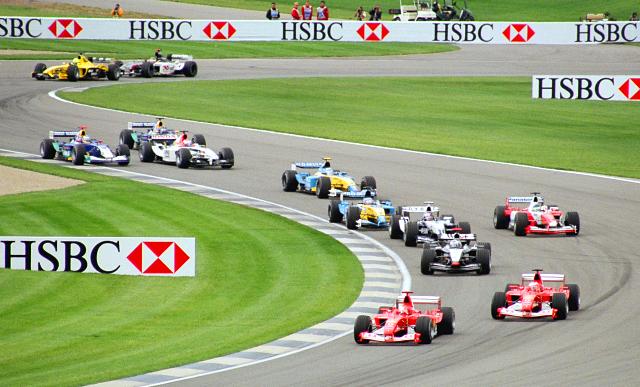‘Capping costs not feasible in Formula One’
 David Coulthard doesn’t mince words. Apart from this quality, the former Formula One driver, who retired last year after 15 years in sport, but remains a consultant to the Red Bull racing team, has a keen sense of humour that was evident in the way he had groups of students in roars of laughter at the auditorium of a private university here. Even as he parried questions from keen students, he took out time for an interview with the Hindustan Times. Excerpts:
David Coulthard doesn’t mince words. Apart from this quality, the former Formula One driver, who retired last year after 15 years in sport, but remains a consultant to the Red Bull racing team, has a keen sense of humour that was evident in the way he had groups of students in roars of laughter at the auditorium of a private university here. Even as he parried questions from keen students, he took out time for an interview with the Hindustan Times. Excerpts:
You joined the sport when there was a huge debate on safety issues. Do you think F1 has become safer from the time you joined? The low point was definitely in 1994 at Imola when Ayrton Senna and Roland Ratzenberger died. But over the years, safety and security have improved so much that people have been able to walk away from huge crashes. Robert Kubica survived a crash a couple of years ago in Canada. What happened with Felipe Massa was a random situation.
The chances of a spring from another car hitting someone’s head through the helmet (like it happened in Massa’s case) are very remote. I think the FIA (world motorsport body) has always reacted desperately after every incident, increased the size of cockpits, run-off areas etc.
What do you think of cost caps? I don't think capping costs is manageable. In American football, they've tried cost caps, but they pay through other ways — like housing and other benefits. Capping costs will mean taking away advantage from someone who has bought or earned that to have it as his right. I think the cost of competing should be lowered instead. For example, now you buy engines for five million euros, while earlier it was expensive. Tyres are available at a controlled price.
An Indian GP is in the pipeline. What are the problems you foresee? The problem, of course, is to have the government fund the building. It should be seen more than just a standalone business. It is an opportunity to not just showcase the engineering and construction talent, but should also be viewed as a venue to train drivers. The track should be in use for 365 days. We need to get young people to drive on it.
Should Force India try Indian drivers? Although Force India is owned and influenced by an Indian, I don’t think it should be a learning ground. From the media point of view, it is going to be negative for both the team and the driver if an inexperienced driver fails to perform. You can’t have driver just on the basis of nationality. You need to develop a racing culture to develop drivers.
You were surrounded by glamour all through your career.
(In a hushed tone) I’ve travelled the world and have been given opportunities and I tasted as many as I could. Now I am settled down, living a normal life.